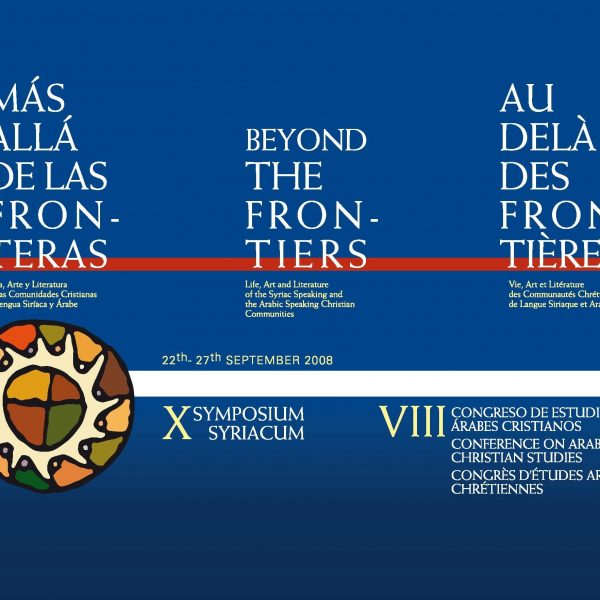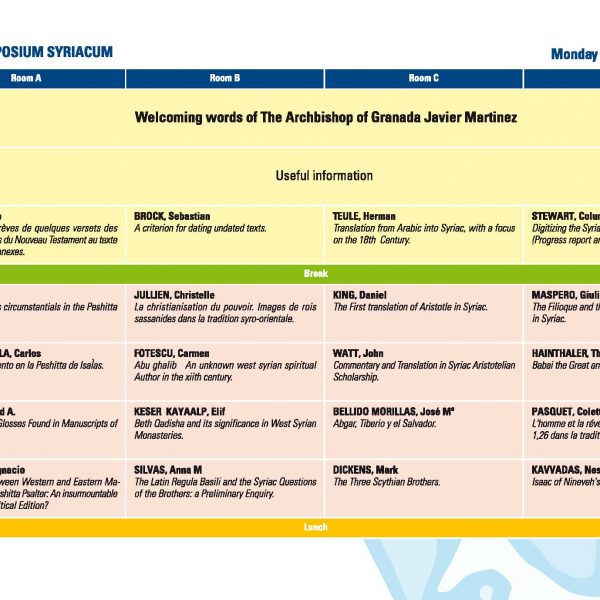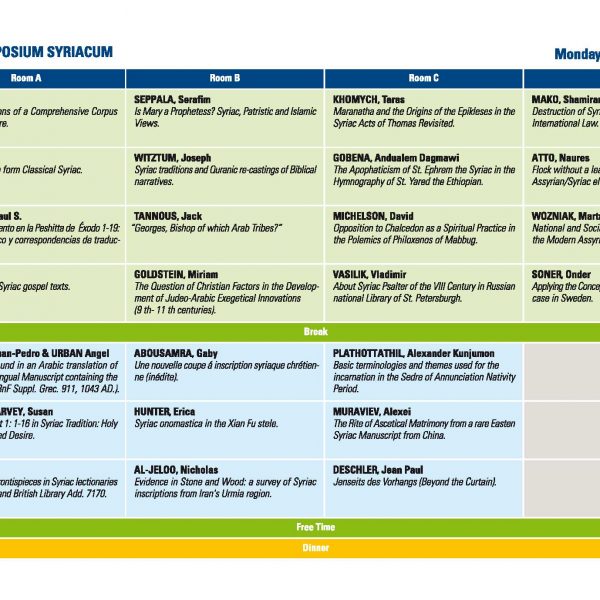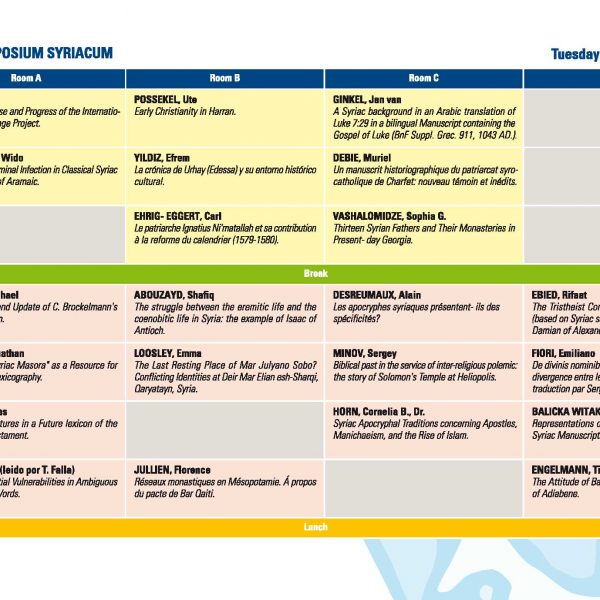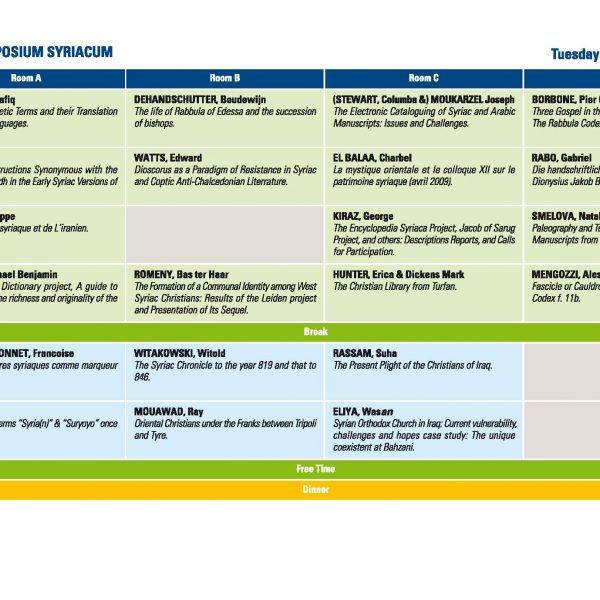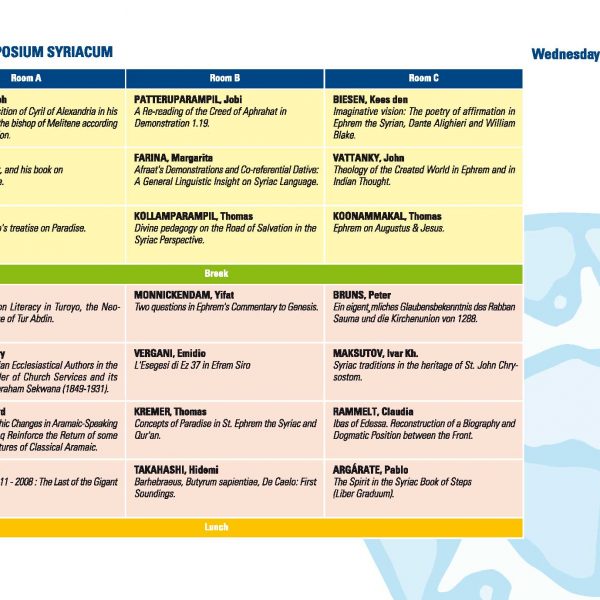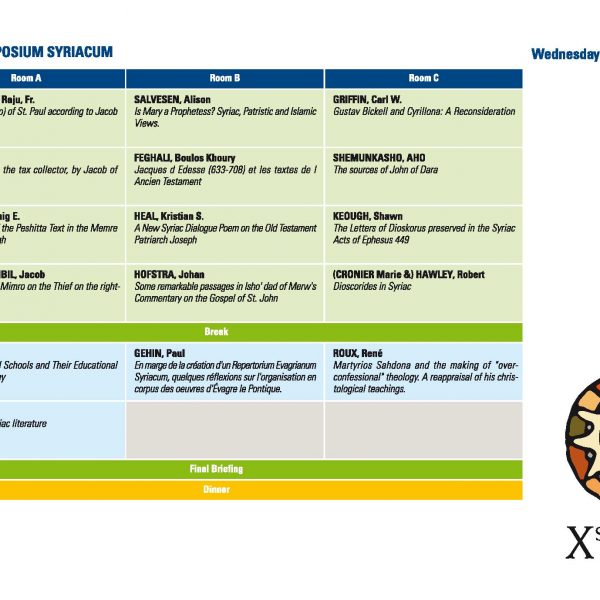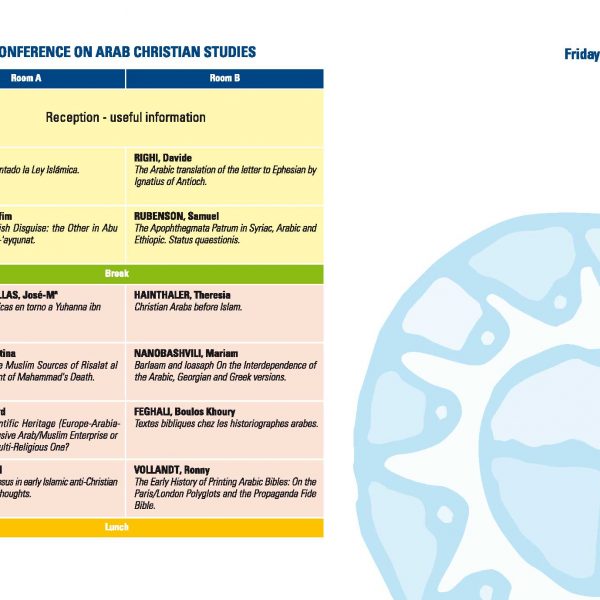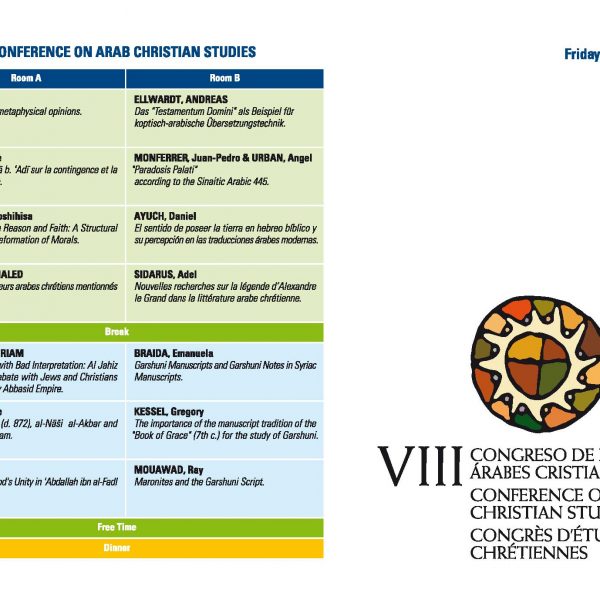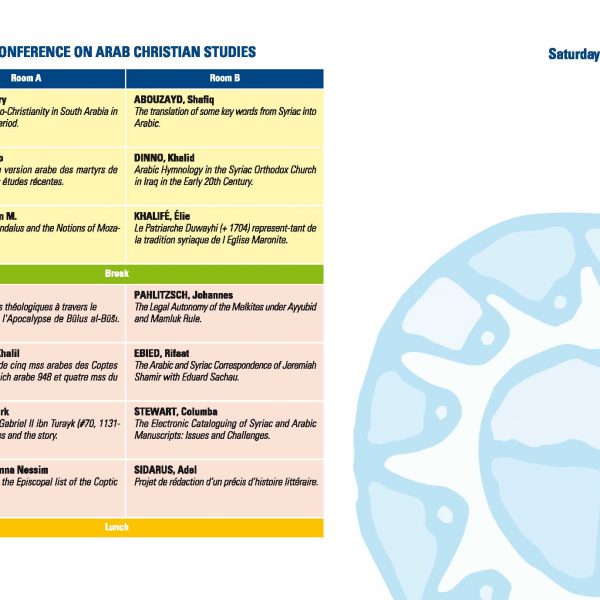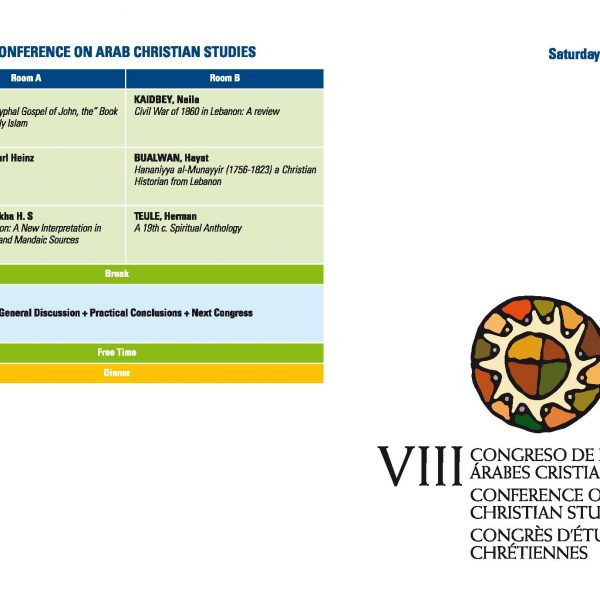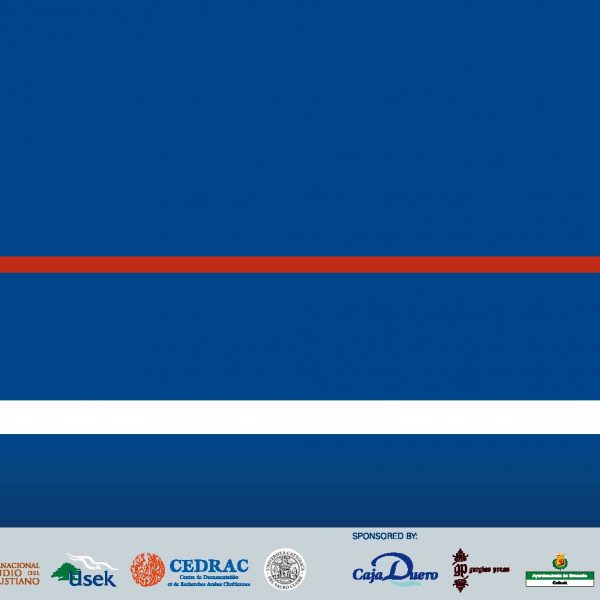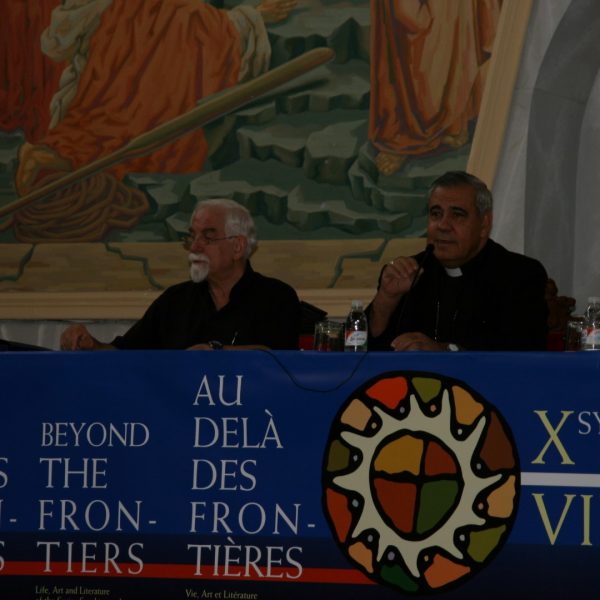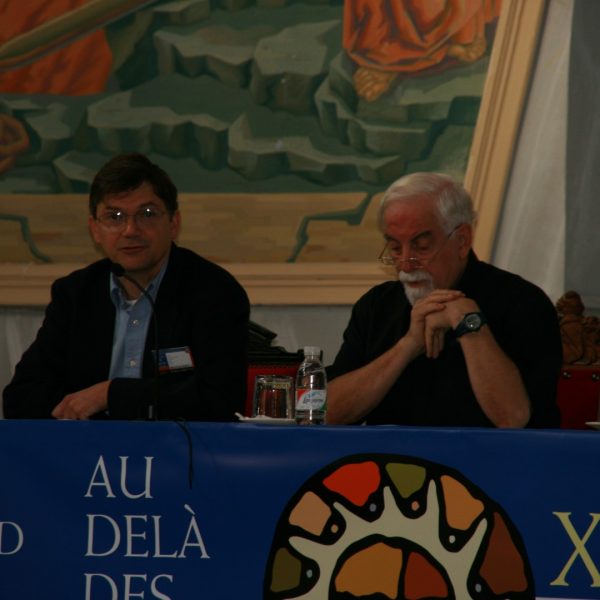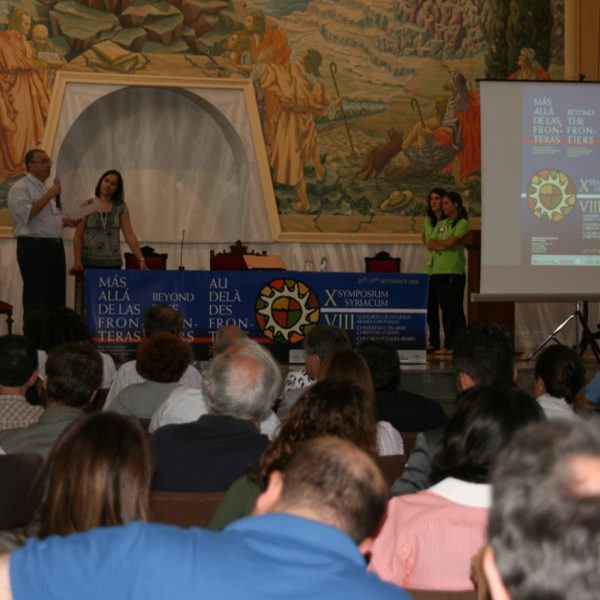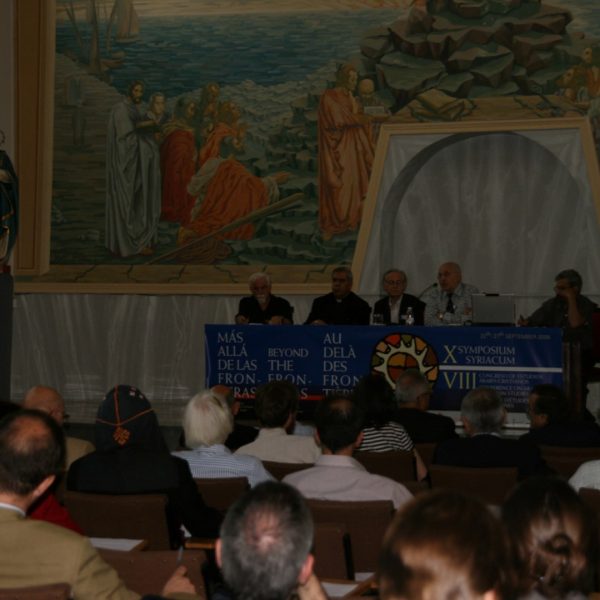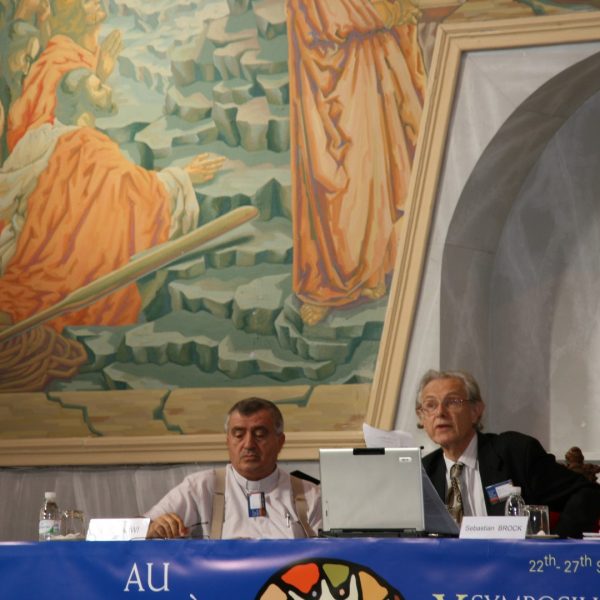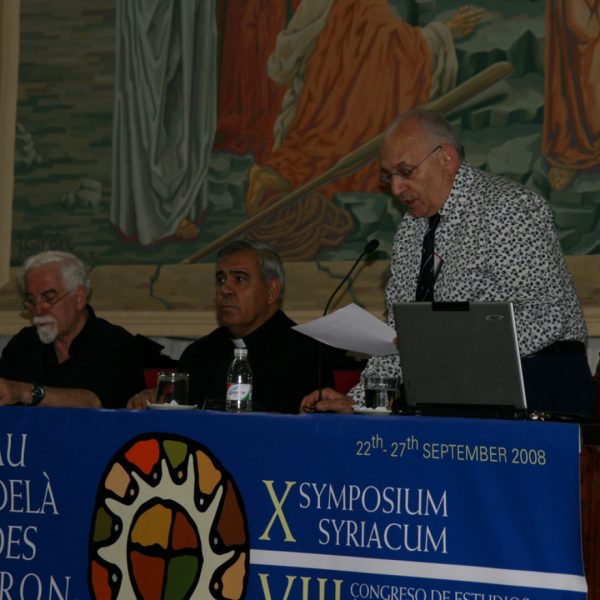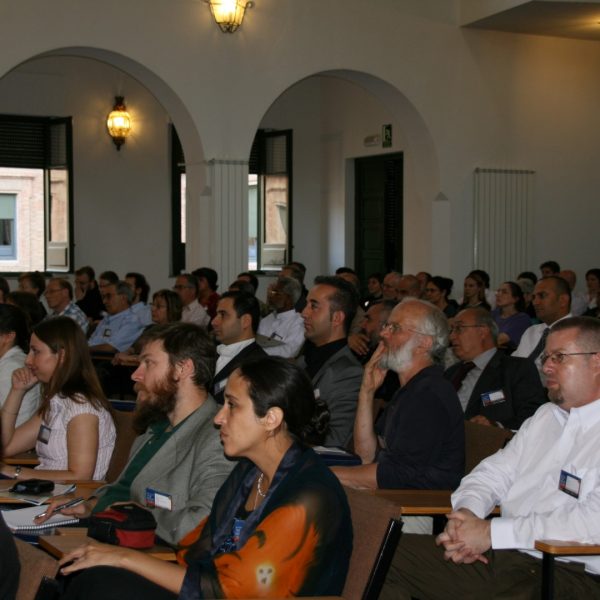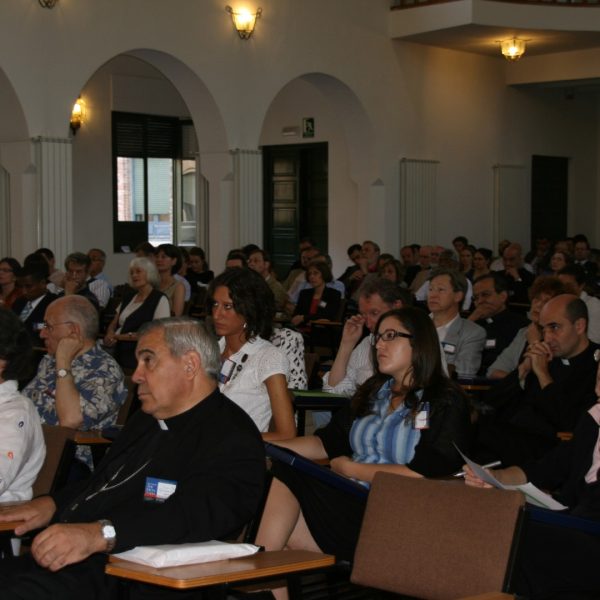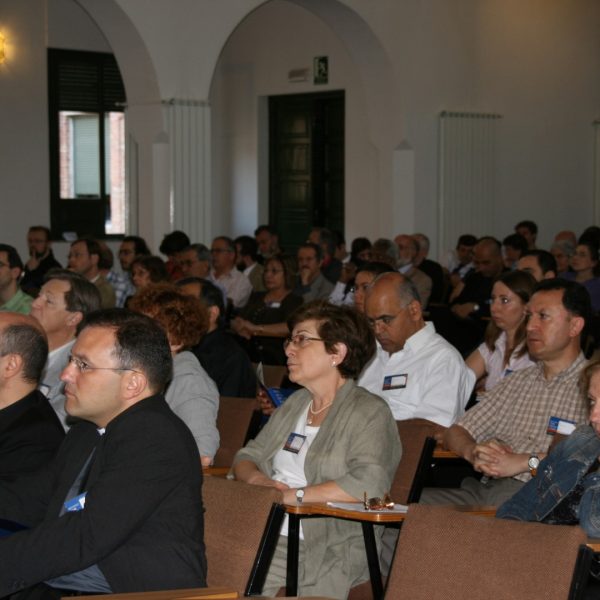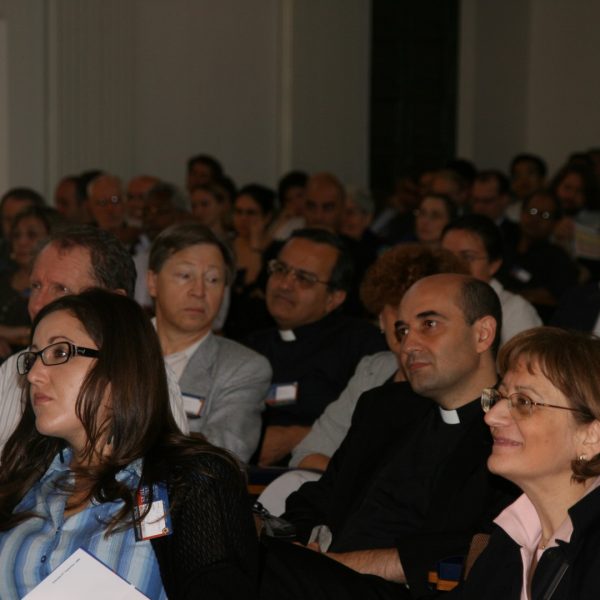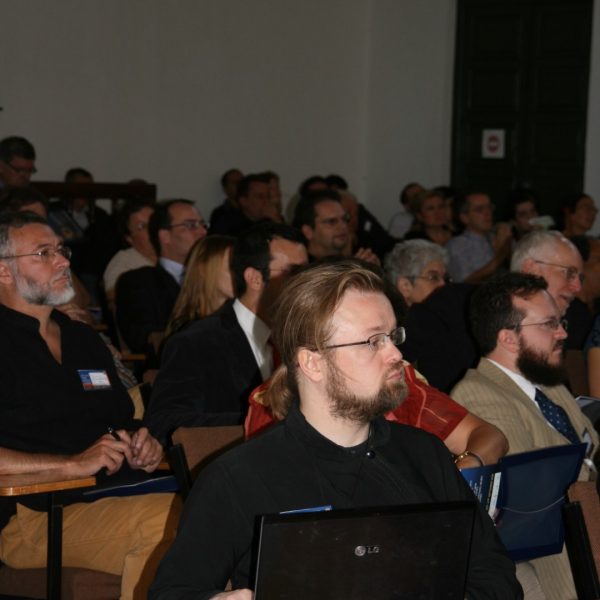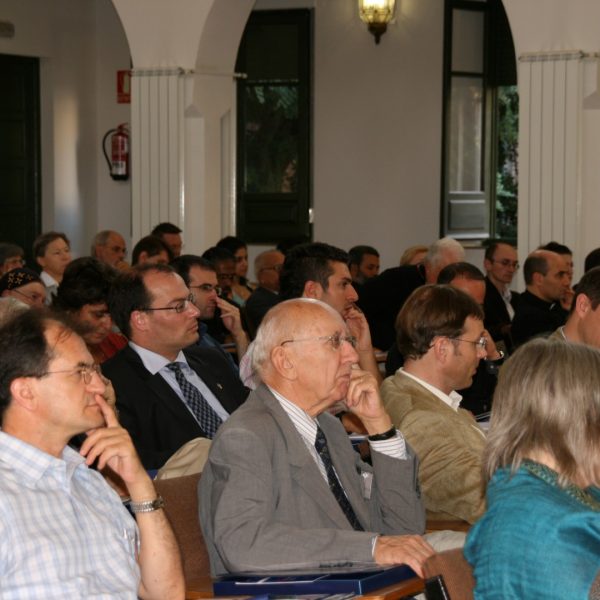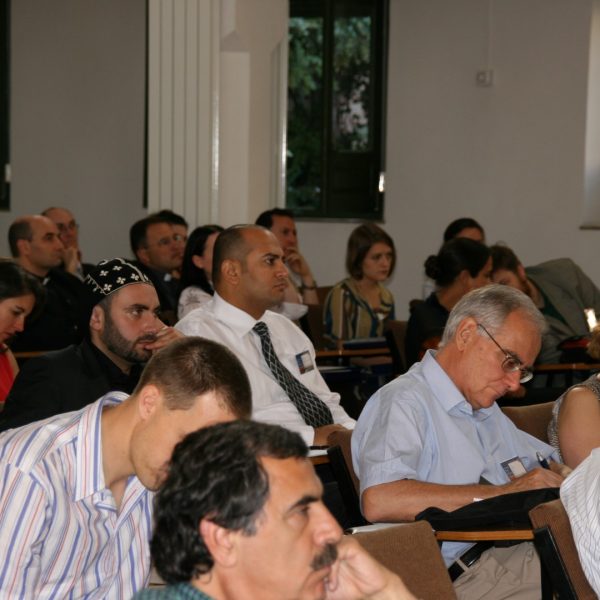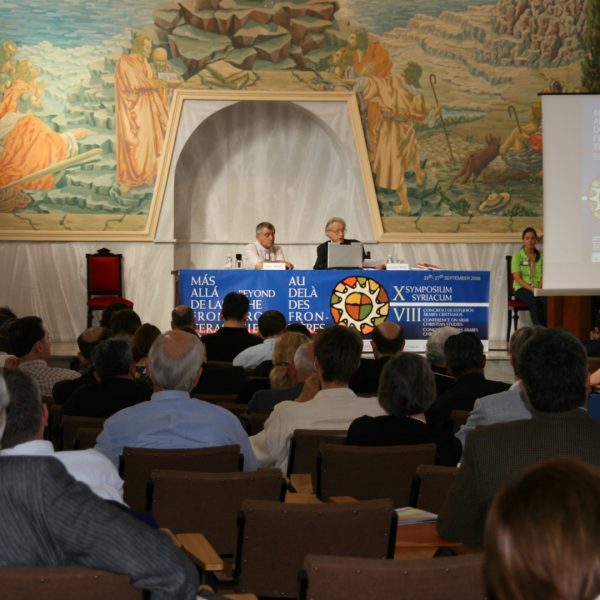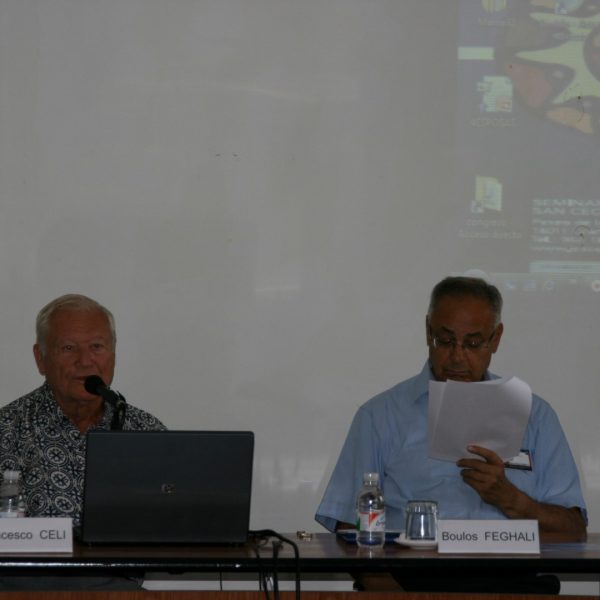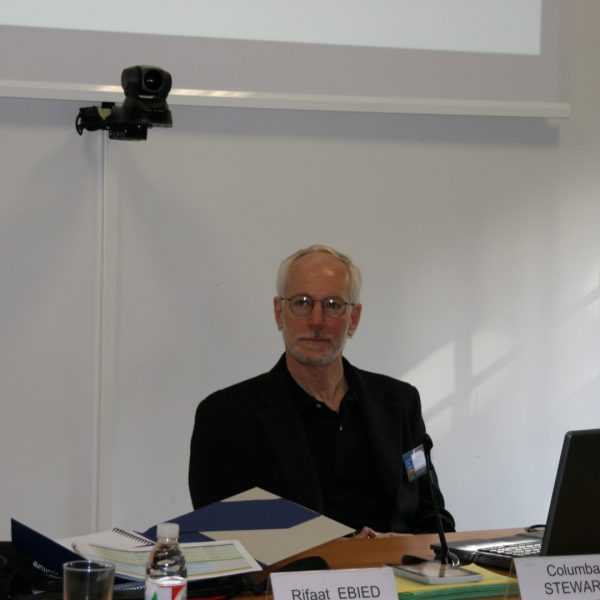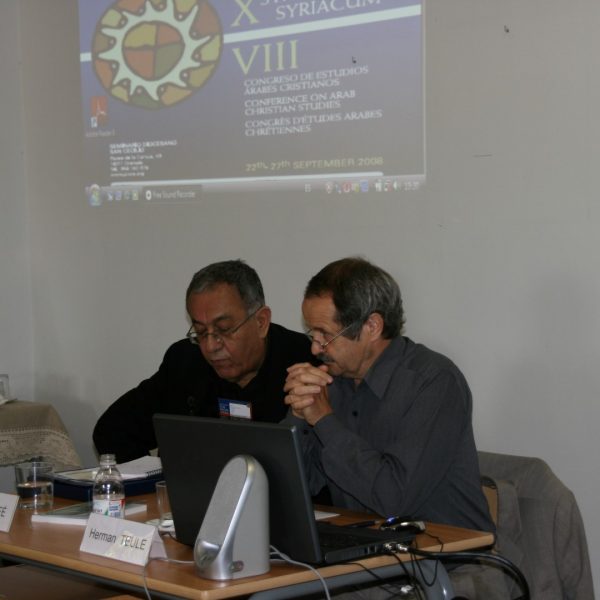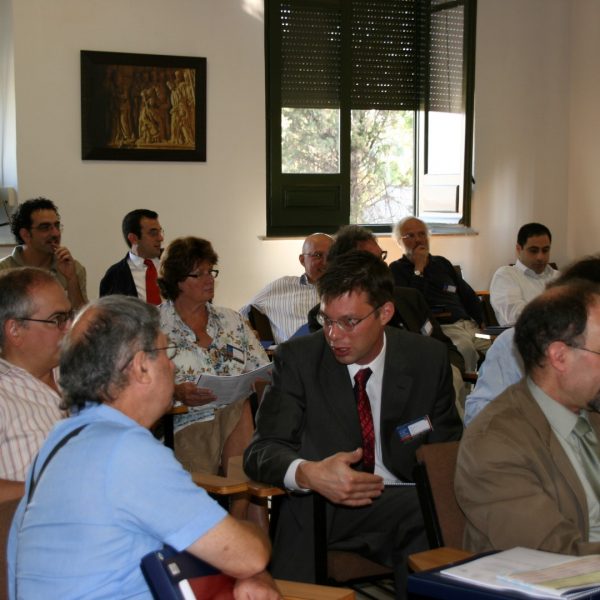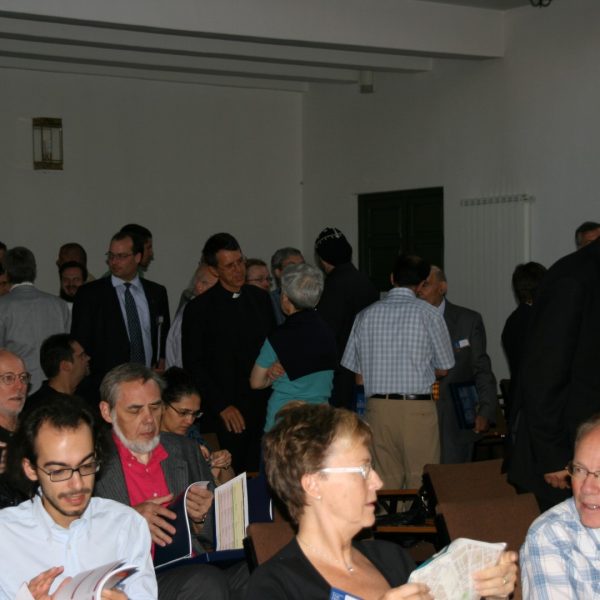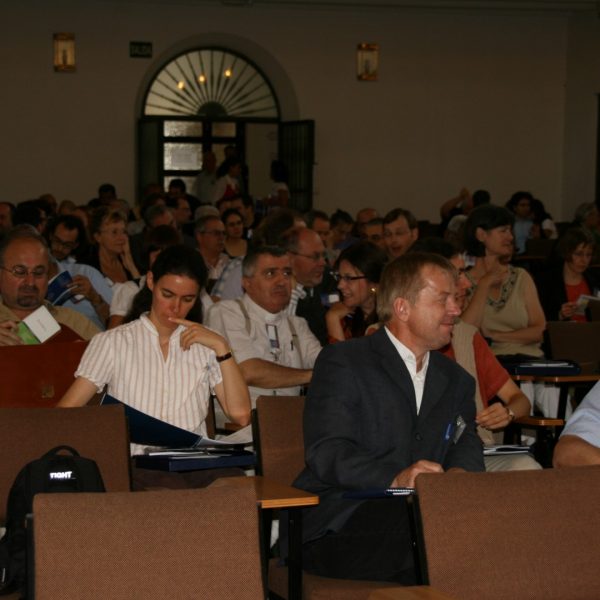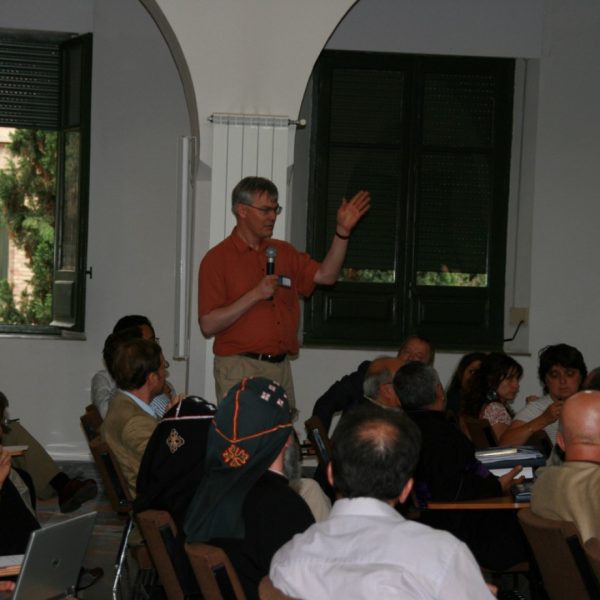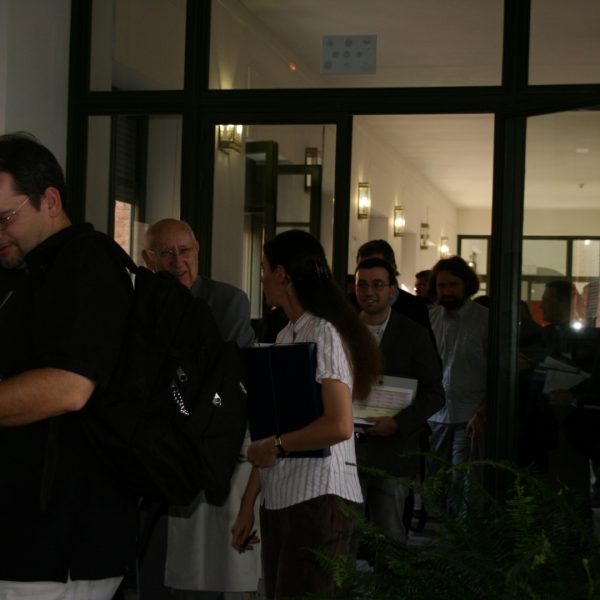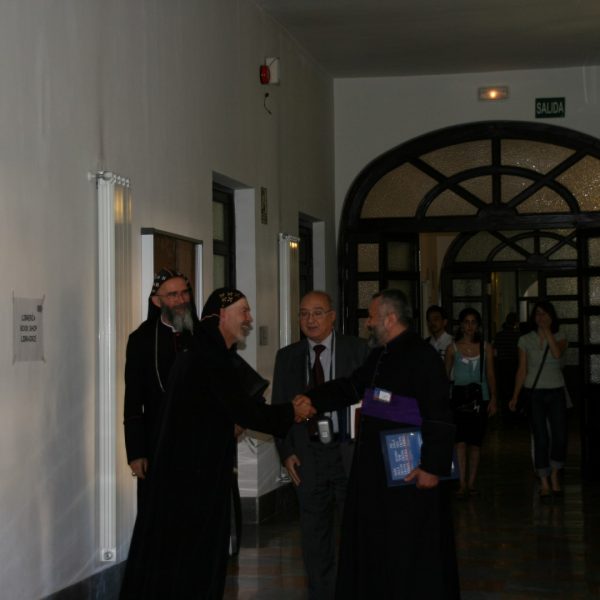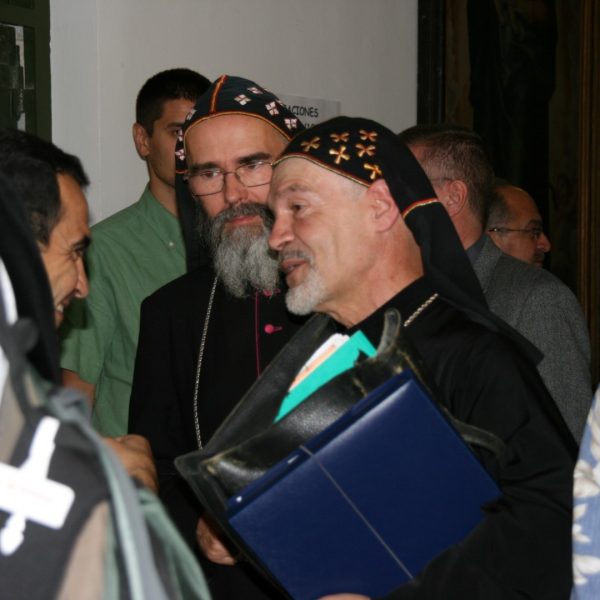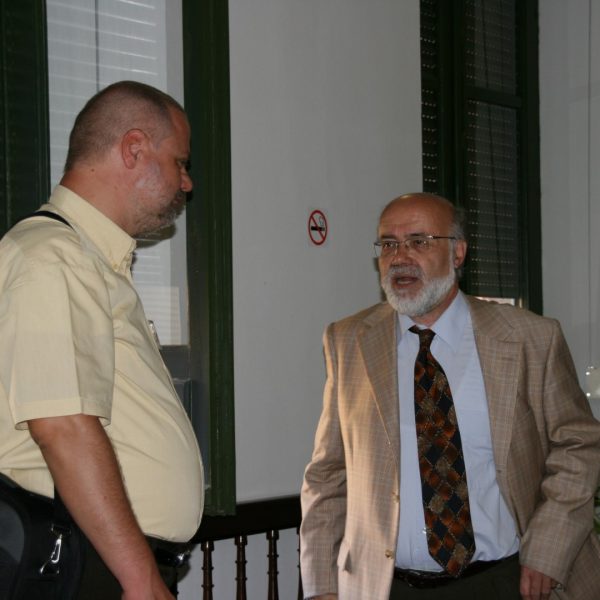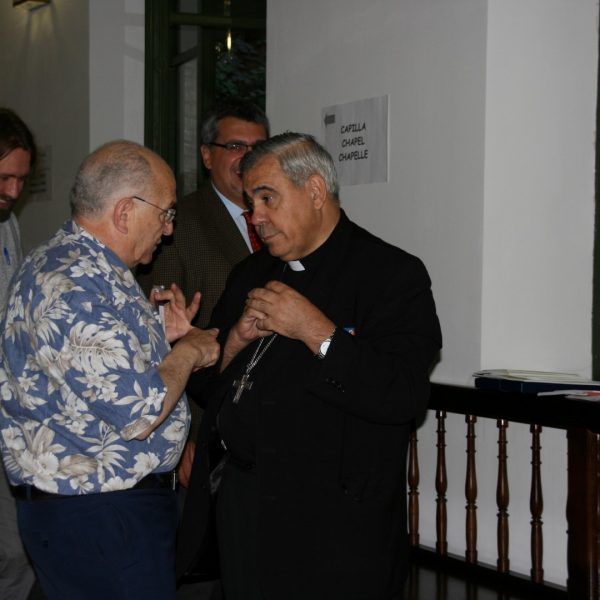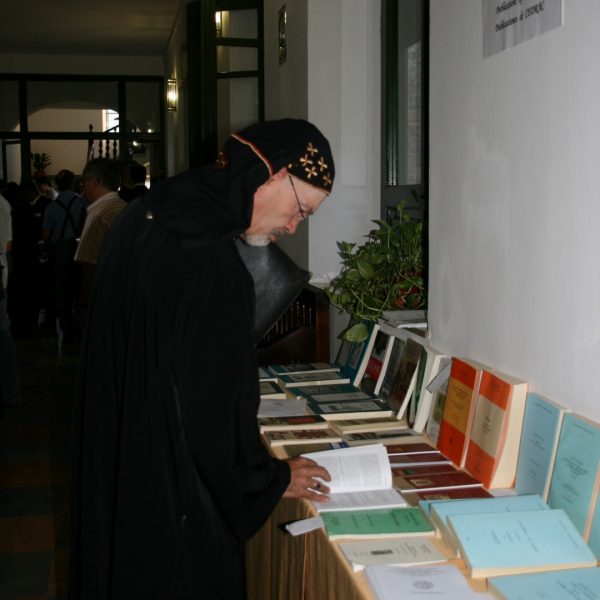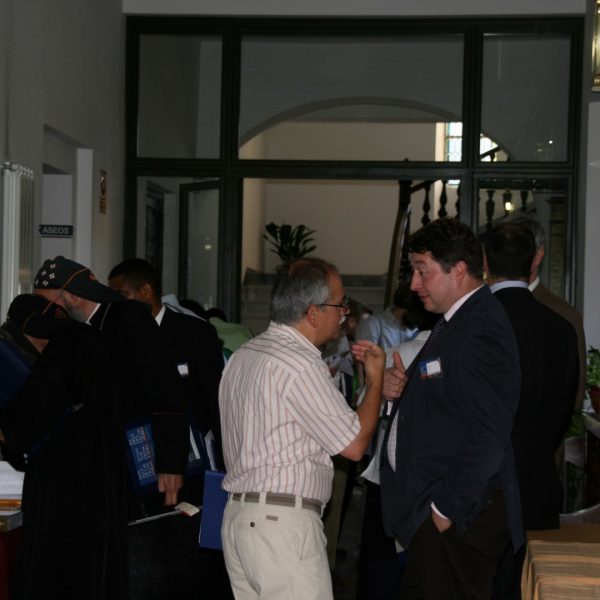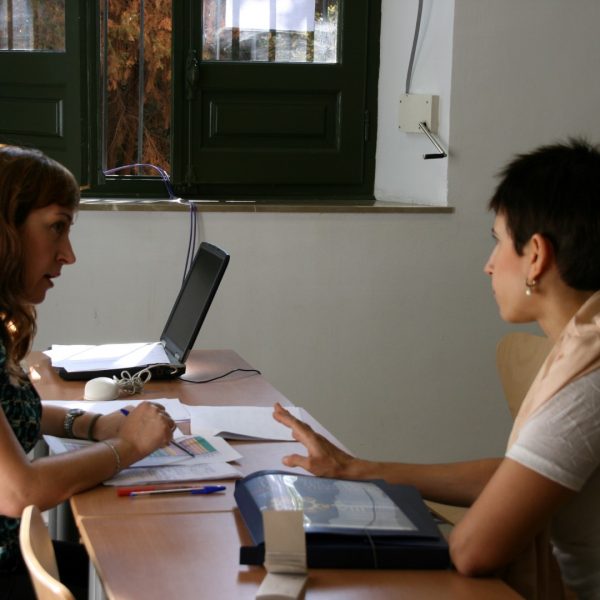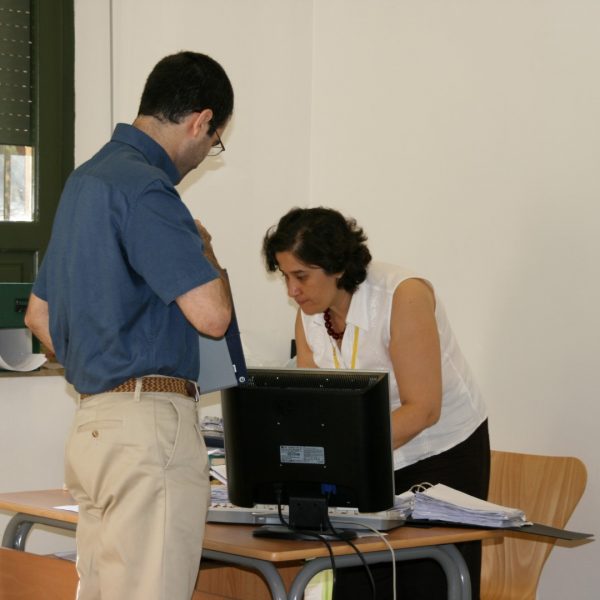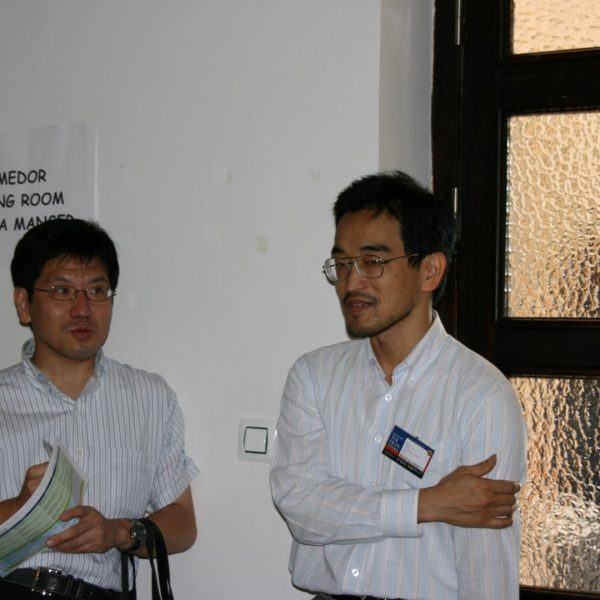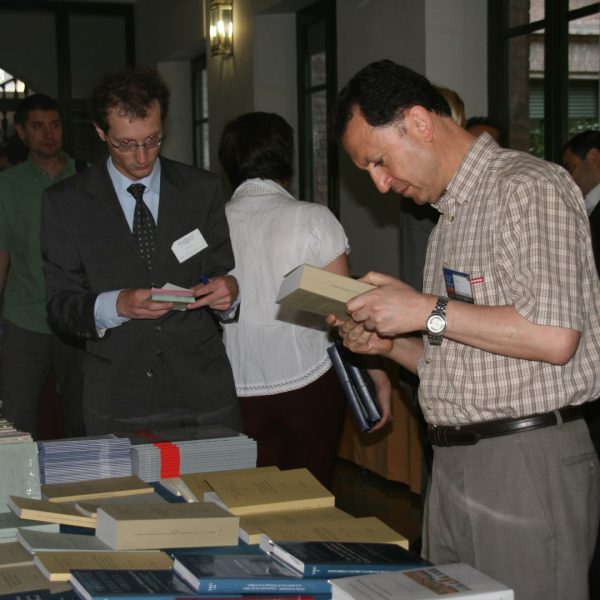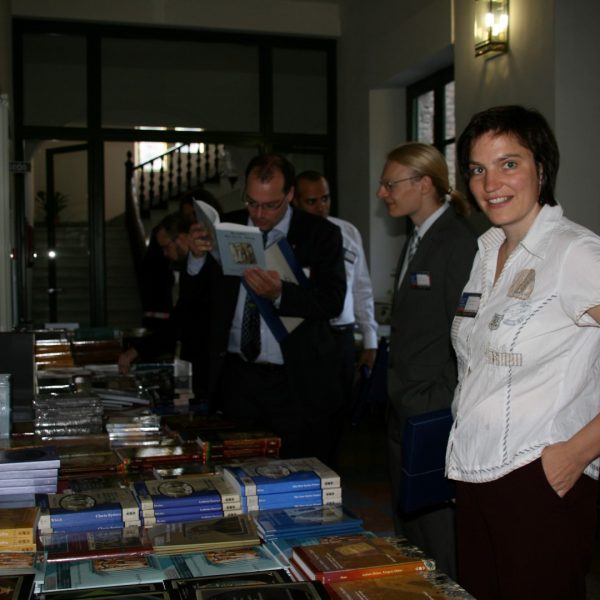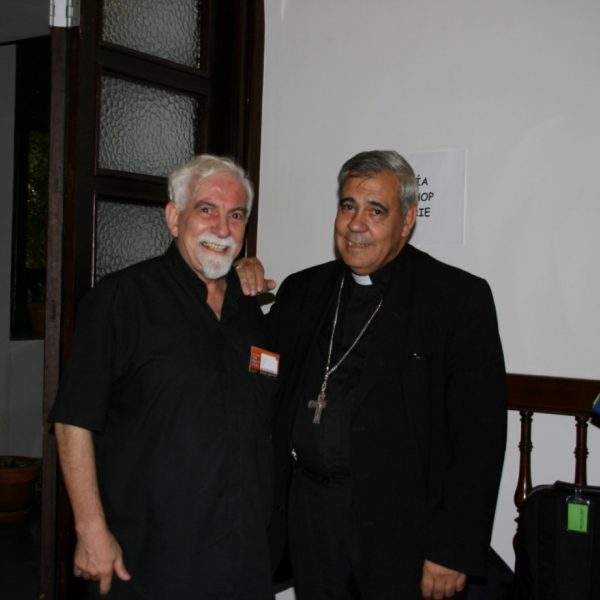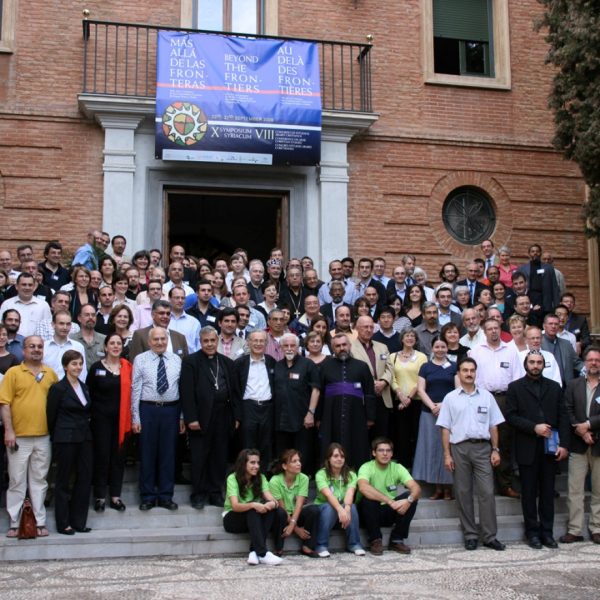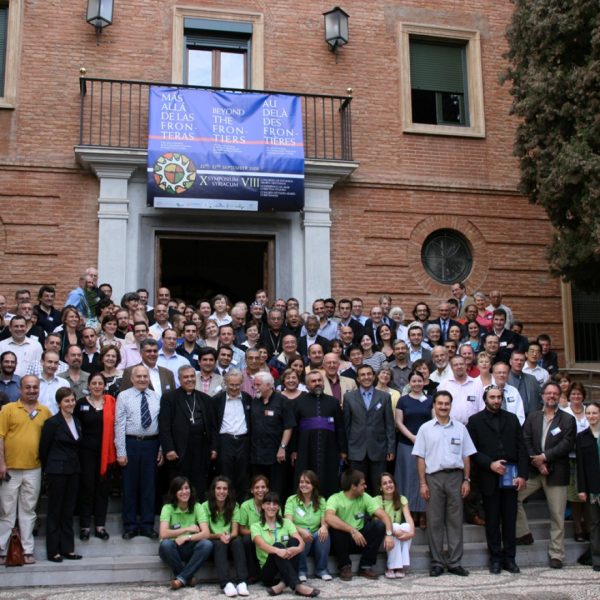HISTORY
Until 1972, all the patristic conferences held in the West were dedicated solely to the study of the Byzantine and Latin traditions. Noting a lack of a congress that was dedicated to the Syriac tradition, Fr. Ivan Zuzek, S.J., then Rector of the Pontifical Oriental Institute, Rome, and Fr. Ignacio Ortiz de Urbina, S.J. († 1984), Prof. of Syriac at the Institute, started thinking about a Syriac symposium. Their views were shared by Prof. Antoine Guillaumont († 2000), Prof. of Syriac patristics at l’Ecole Pratique des Hatues Etudes of Sorbonne (later at the Collège de France), and Fr. François Graffin, S.J., Prof. of Syriac at the Institut Catholique in Paris and then director of Patrologia Orientalis. The four scholars decided that a symposium on Syriac studies should be held every four years, starting in 1972.
The first Symposium Syriacum (26-31 October, 1972) was held at the Pontifical Oriental Institute, Rome, organised by Fr. de Urbina. Some of the eminent Syriac scholars who participated were †A. de Halleux, †L. Leloir, J. Mateos, Mgr. B. Gemayel, S. P. Brock, L. Abramowski, †W. Strothmann, H. Drijvers, †J. M. Fiey, and †Mgr. J.-M. Sauget. All the participants had an audience with Pope Paul VI in the Vatican.
The second Symposium (13-17 September 1976) was organised by Prof. A. Guillaumont and Fr F. Graffin at the Centre culturel les Fontaines, Chantilly, France. Remarkable was the increased number of participants which grew to eighty Syriac scholars from Europe, Asia and America. The papers that were presented studies topics related to manuscripts, exegesis, patristics and liturgy.
The third Symposium (7-11 September 1980) was organised by Prof. Gernot Wissner in Goslar. This time the symposium concentrated around a single topic, “The contacts between the Syriac and other cultures”.
The fourth Symposium (10-12 September 1984) was organised by H.J.W. Drijvers in Groningen – Oosterhesselen. The main theme of the congress was “Literary Genres in Syriac Literature”. The papers showed “how Syriac-speaking Christianity took over and transmitted the common heritage of classical culture and the literary products of nascent Christianity” (H.J.W. Drijvers, the proceedings).
The fifth Symposium (29-31 August 1988) was organised by Prof. Emilio Platti at Katholieke Universiteit, Leuven. The number of participants reached over one hundred. Worth noting were, for the first time, papers on computing problems by Giorgio Borbone and by George Anton Kiraz. Another new feature of the congress was an increased number of participants from India and from the Middle East.
The sixth Symposium (30 August – 2 September 1992) was organised by Rev. Dr. Lionel Hunter, and Rev. Dr. W. Horbury at the Faculty of Divinity, University of Cambridge. Noteworthy was the introductory paper by Sebastian Brock, “Syriac Studies in the Last Three Decades: Some Reflections” who remembered the deceased Syriac scholars: Fr. Ortiz de Urbina, Prof. Arthur Vööbus, Fr. Hambye, and Dom Louis Leloir.
The seventh Symposium (11-14 August 1996) was organised by Dr. Witold Witakowski and his wife Ewa Balicka-Witakowski at the Department of Asian and African Languages, Uppsala University. Among the usual range of topics, noteworthy was the interest shown for the issues of philology, grammar and dialects.
The eighth Symposium (26-30 June, 2000) was organized by Prof. Rifaat Ebied at the University of Sydney. This was the first time the Symposium was held outside of Europe. Noteworthy was the participation of the various Syriac-speaking communities who invited the participants for dinner and services every evening.
The IXth Syriac Symposium and the VIIth conference on Christian Arab Studies took place in Lebanon from Monday, September 20 to Saturday September 25, 2004, as decided in July 2000 in Sidney, Australia. The two events are organized jointly by the Holy Spirit University of Kaslik (Jounieh) and the CEDRAC of Saint Joseph University (Beirut).
The Xth Syriac Symposium and the VIIIth conference on Christian Arab Studies took place in Granada from Monday, September 22 to Saturday September 27, as decided in September 2004 in Beirut, Lebanon. The two events were organized jointly by the Holy Spirit University of Kaslik (Jounieh) and the CEDRAC of Saint Joseph University (Beirut) and the International Center for the Studies of the Christian Orient ICSCO (Granada, Spain).
The XIth Syriac Symposium and the IXth conference on Christian Arab Studies will take place in Malta 2012.
INVITATION LETTER
Xth SYMPOSIUM SYRIACUM
VIIIe CONFERENCE ON ARAB CHRISTIAN STUDIES
GRANADA, SPAIN, September, 22-27th, 2008.
BEYOND THE FRONTIERS
Life, Art and Literature of the Syriac Speaking and
of the Arabic Speaking Christian Communities,
FIRST NEWSLETTER: COMMUNICATION AND CALL FOR PAPERS
December, 2007.
TO ALL WHOM IT MIGHT CONCERN
This letter is to formally communicate to all interested persons the celebration of the Symposium Syriacum and the Conference on Arab Christian Studies in Granada (Spain), September 22th-27th, 2008, as agreed in in Beirut in the year 2004, at the occasion of the celebration of the last Symposium & Conference. This communication includes a call for papers both for the Symposium and for the Conference.
Although the Symposium/Conference is been conceived as lasting six whole days (from monday to saturday), the distribution of those days between the Symposium Syriacum and the Conference of Arab Christian Studies will depend on the number of papers offered.
Both the Symposium and the Conference are been prepared in cooperation with the two institutions that hosted the previous celebration in Beyruth, i.e., the CEDRAC (Université Saint-Joseph, Beyrouth), and the Université Saint–Esprit, Kaslik, Lebanon.
The proceedings of both the Symposium and the Conference will of course be published in the time of a year within the celebration. For the publication, we are considering several possibilities, both in Europe and in the Middle East.
Topics
Needless to say, the papers accepted for the Symposium and the Conference will have to keep the same academic quality and academic excellence as in the previous ones, since those level and excellence have been a mark of these two events from their beginning.
As it is clearly stated in the subtitle for both the Symposium and the Conference, the topics will include anything related to the life, art or literature of the Syriac Speaking Churches for the Symposium Syriacum, and the same (life, art and literature) related to the Arabic Speaking Christian Communities for the Conference on Arab Christian Studies.
Of course, the Symposium and the Conference being held in Granada, besides the topics usually included in these events, which have already a long standing tradition, it will be also of interest this time having some papers on the “Mozarabic Christians”, and on the Christian “Moriscos”. The relationship between the Mozarabs and the Christian Communities in the Middle East is a most interesting topic, and a field of research almost untouched.
The idea of the “frontier” has been suggested, first, because Granada has been and still is in many ways a frontier city. Frontier between Islam and Christianity before the Christian conquest, frontier between the Castillan and the Morisco communities after the conquest, frontier between the medieval world and modernity in its beginnings, and frontier between modernity and post-modernity now. In many ways, the destiny of Granada seems to be marked by this human reality of the frontier. But also, in many ways, the Syriac Speaking Christians have been “beyond the frontiers” of Greek Speaking Chrsitianity, even when they lived within the Byzantine Empire, and the Arabic Speaking Christian communities have been and are “beyond the frontiers” of the Christian world, living in a Muslim environment.
Now, living “beyond the frontiers” certainly creates certain difficulties, but it also offers new possibilities of expression, communication and dialogue. A frontier is conceived always initially as a human division, but it can also become a place for knowledge, for mutual understanding and even for union.
Time of the celebration and deadline for the inscription of papers.
As already said, the Symposium and the conference will be held from the 22th to the 27th September. As in Beyruth, the Symposium Syriacum will take place in the first days of the week and the Christian Arabic Conference in the last part of the week. The exact distribution will be communicated when we know in more detail the number of papers presented for each of the events.
THE DEADLINE FOR THE INSCRIPTION OF PAPERS WILL BE THE 15TH OF JULLY 2008. THE DEADLINE FOR THE INSCRPTIONS OF ONLY ATTENDANCE WILL BE TH 30TH OF JULY 2008.
The place of the meetings
The meetings will take place in the provisional See of ICSCO (International Center for the Study of the Christian Orient), a little institution recently created by the Archbishop of Granada, which when it is developed would be by now the only Center in Spain which wants to develop this kind of studies about the Christian traditions in the Middle East. This building, which is now also the see of the Seminary of Granada, has been recently retoured, it is close to the center of the city, and has the possibility of hosting around 90 people in nice individual rooms (more people if some would willing or would prefer to share their room with some other person, since all rooms can be converted into double rooms). It has also nice classrooms and other facilities (kitchen and a wide dining room, cafeteria, library, wi-fi connections, etc), which will make, we hope, a pleasant place for our meetings.
The price
The inscription to the Symposium and Conference will be around 60 € pro day. This price will include attendance to the lectures, room and board. In the case of double rooms, the price will be around 50 € pro day and person. These prices will not include the visit to the Alhambra (25 €), and the excursion to Cordoba (60 €). We will try to lower those numbers as much as possible, through obtaining some sponsorship or some other kind of help.
In the next newsletter that you will receive in the middle of January, we will include the exact prices with all kinds of details and with the forms of inscription, both for papers and for attendance.
For any stay before or after the Congress, the organization will help as much as possible with the necessary information, but it should be paid apart.
In the case that there will be more people attending the meetings than the rooms available in the building of the Seminary, we will have the possibility of offering other religious houses or certain hotels nearby, including of course transportation back and forth, although the meals will always take place in the Seminary building. The assignation to the Seminary or to the other places will follow an exact order of inscription to the Symposium and/or the conference. Eventual variations for the price of room and board due to the use of these other places will be communicated in the next newsletter. The hotels will of course be quite more expensive.
During the Symposium will take place, for those who want, of course, a visit to the Alhambra Palace in one of the evenings (at a time when there are no tourists), and eventually a visit to the Cathedral and the so-called “Royal Chapel”, where the tomb of the Catholic Kings is kept.
We will also give the opportunity to visit the “Sacromonte Abbey”, in front of the hill of the Alhambra, an abbey built in the end of the 16th century to host the “libros plúmbeos” or “led-books”, so named because they are a number of arabic texts written on led plates on the beginnings of Christianity in Granada… and attributed to the first Century! These writings were found at the end of the 16th century next to certain tombs, allegedly belonging to the first Christian martyrs of Granada, including that of the first bishop of the city, Kekilios, supposed to be an arab cured by the Lord and then companion and disciple of St. James. No need to emphasize that these books are a forgery, and so were also declared by the Church authority very early, although their very writing sheds a very interesting light on the difficult relationship between the “Moriscos” and the Christian Castillan community (that is really the Sitz im Leben of the books). The books, clearly written by some “moriscos”, have never been studied to my knowledge from the perspective of the Christian Arabic literary tradition.
Once the Abbey will be retoured (it is in grand need of that restauration, especially after a fire that destroyed its residence in the year 2000), it will become the See of ICSCO, as a place where regular courses and research on the Christian communities in the Middle East will be held permanently.
Finally, both at the beginning and the end of the Symposium/Conference, a trip to Cordoba will be offered, in order to visit the place of the old Ummayad mosque (today, the Cathedral of Cordoba), and perhaps also the little museum of the Roger Garaudy Foundation. Cordoba is only two hours and a half from Granada, so that the trip can be easily done in a day.
FINALLY, IF YOU KNOW OF ANY PERSONS THAT COULD BE INTERESTED IN THESE EVENTS, PLEASE SEND THEM THIS LETTER, OR CONTACT US AT
WE ARE AT YOUR DISPOSAL. SINCERELY YOURS
+ Javier Martínez
Archbishop of Granada
President of ICSCO
PROGRAM OF THE CONFERENCE AND BOOKS OF ABSTRACTS
The Program of X Symposium Syriacum and VIII Conference on Acab Christian Studies, available also in PDF.
Abstracts of X Symposium Syriacum PDF.
Abstracts of VIII Conference on Arab Christian Studies PDF.
PHOTO, BOOK AND PRESS RELEASE
Book and Press Release
Actes du 10e Symposium Syriacum: (Granada, septembre 2008). Parole de l´Orient, vol. 35, University Saint-Spirit, Kazlik, 2011
Congreso internacional «Granada, más allá de las fronteras» en Fiesta Nº 795, 28 de septiembre de 2008
“El jesuita Samir Khalil Samir en Granada” en www.odisur.es, 28 de septiembre de 2008
“Realizan en España 8º congreso internacional árabe cristiano” en www.aciprensa.com, 29 de septiembre de 2008
“Celebrado en Granada un Congreso Internacional de Estudios Árabes Cristianos” en www.zenit.org, 30 de septiembre de 2008
Entrevista al padre Samir Khalil Samir, en su visita a Granada «La fe en los países árabes» en Fiesta Nº 796, 5 de octubre de 2008
“Xème Symposium Syriacum et VIIIème Congrès des Etudes Arabes Chrétiennes à Granada” in www.rjliban.com
Smelova, Natalia. “The Xth Symposium Syriacum and the VIIIth Conference on Arab Christian Studies” in www.orientalstudies.ru, 16/12/2008
Etc.

